News
On World Environment Day, President warns nature’s enemies, including corrupt politicos
View(s):By Ishu Bandara
Despite Sri Lanka having strong environmental laws, enforcement has often been undermined by political interference and corruption, said President Anura Kumara Dissanayake, while openly criticising the involvement of politicians in illegal activities such as sand and rock mining and deforestation.
He expressed these hard truths at the State Environment Day programme held to mark the 53rd World Environment Day celebrations on June 5, 2025. The event was held at Nidahas Mawatha in Kegalle.
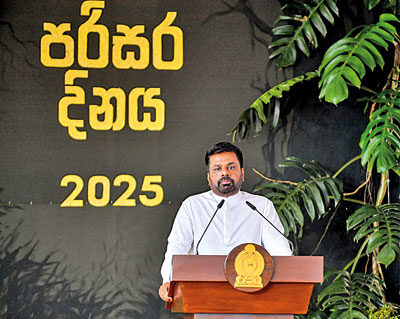
President Anura Kumara Dissanayake addressing the state event to mark World Environment Day. Events were also held across the country to mark the day
To coincide with the World Environment Day celebrations, the Environment Ministry declared an Environment Week, assigning a different theme to each of the seven days.
The day was celebrated in Sri Lanka under the theme “Let it Sprout”. In addition to President Dissanayake, the event was attended by Environment Minister Dammika Patabendi, Sabaragamuwa Province Governor Champa Janaki Rajaratne, Vedda leader Uruwarige Vannila Aththo and a host of local and international dignitaries.
Addressing the gathering, President Dissanayake said, “Many of the illegal operations against nature are either run by politicians or their agents. Some public officials remain too obedient to political power, even when governments change. This must stop.”
Pledging the government’s fullest support and calling on the people to continue standing firm in their efforts to protect nature, the President said, “If certain officials refuse to change, we will be forced to change them. The community is ready to protect nature, but politicians must align with this effort.”
Commenting on one of the most controversial and pressing environmental issues today, the human-elephant conflict, the President said, “In one year alone, 172 people were killed by elephants. But in the same year, 450 elephants were killed by humans. That’s a tragic ratio of nearly one to three.”
The President emphasised that this was not just a statistic; it reflected a broader ecological crisis. “The balance between human development and the natural world has broken down,” he warned.
“We are engaged in a silent war between human expansion and natural habitats. If we do not act now to rebuild and restore nature, we are handing over a crisis, not a country, to our future generations,” he said.
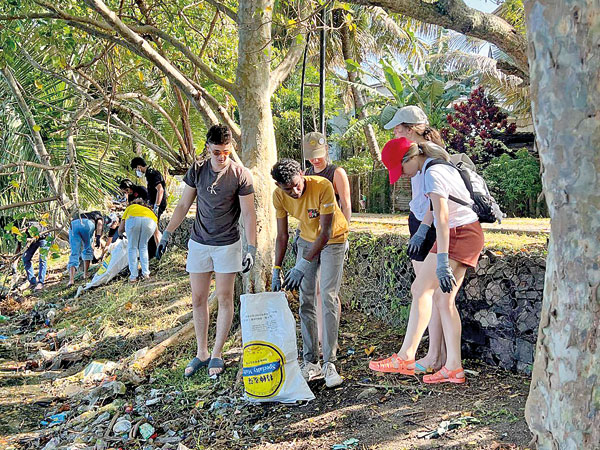
Despite Sri Lanka’s proud history of advanced irrigation, the country is currently facing a growing crisis over clean drinking water. Many areas known for their abundance of clean water are now suffering from severe shortages, and the lack of a safe water supply is leading to an increase in kidney-related diseases.
Addressing this issue during his speech, Mr. Dissanayake said, “Our ancestors protected Sri Lanka’s central highlands, which served as the source of clean, purified water. They never disturbed those regions. Instead, they built projects like Unganmadilla and Minipe Wella to channel water to the plains, always thinking in terms of long-term sustainability, not short-term solutions. But today, we have interfered with the central region, and now we are facing the consequences.
“Even elephants that once roamed freely from the central hills to the lowlands are now caught in conflict. All of this is man-made. We must urgently work to restore a natural environment that is safe and friendly for both humans and animals.”
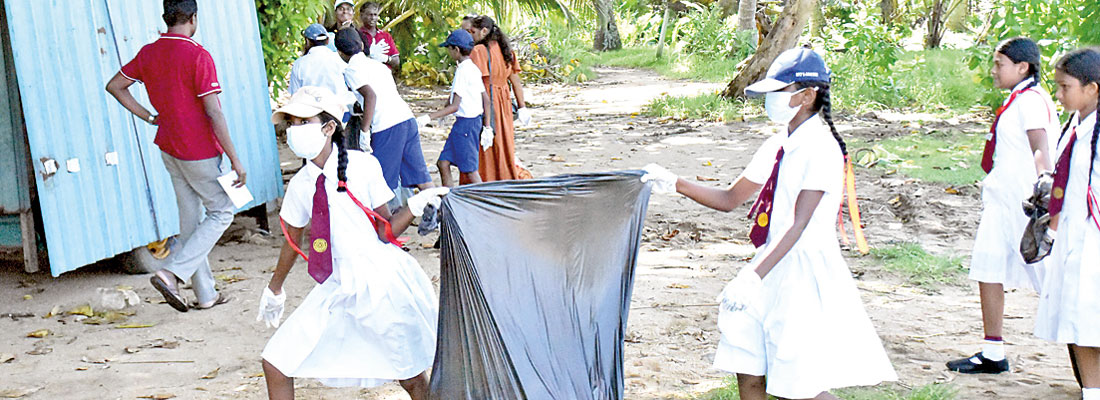
Emphasising the seriousness of the water crisis, the President noted, “Our rivers are full of mud. History shows how our ancestors built reservoirs and respected the natural flow of water. But we have strayed far from those practices. Today, I see water bottles in places like Anuradhapura, Kadugannawa, and Ella—areas that were once abundant in clean water. Now, they are facing unexpected water shortages.”
Among the audience was a significant number of children.
Addressing them directly, President Dissanayake shared a heartfelt message, “We no longer see cranes, cicadas (rahaiyo), or even butterflies. If butterflies cannot survive, how will our children? That is not the butterflies’ failure; it is ours.” Symbolically, he mentioned the loss of creatures once abundant on the island.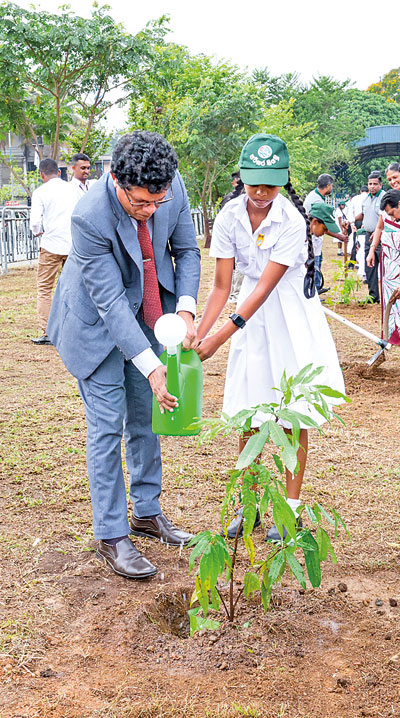
The President reaffirmed his government’s environmental stance, stating, “We have no alternative environmental policy. There is only one: protect what we have and pass it on. That’s it. No division of race, religion, or politics can stand in the way of saving our earth. Let it sprout. Don’t uproot it. Let life grow from our soil again. Each of us is responsible. Though we are a small country, our soul is great. If we live in peace with this earth, the world will recognise us not for our size, but for our spirit.”
Parallel to the World Environment Day celebrations, several key environmental initiatives took place in Kegalle. These included the declaration of the habitat of the Bandula Pethiya as a sanctuary, the presentation of four new gazette notifications related to the declaration of reserves, including the gazette on the Nilgala Reserve, the conversion of three schools into eco-friendly model schools, the evaluation of green railway stations, and the presentation of certificates recognising the 2025 World Environment Day National Programme as a carbon-neutral event.
Sri Lanka’s “National Environment Week” began on May 30 and concluded today, June 5, 2025, addressing various environmental issues throughout the week, with a different theme each day.
It began on May 30 with Plastic Waste Management Day, followed by Reduce Air Pollution and Its Negative Effects Day, Environmental Cleanliness Awareness Day, Biodiversity Conservation Day, Environment Cleanup Day, and Sustainable Land Management Day, and concluded today with the theme Plantation and the National Celebration of World Environment Day.
Apart from the main celebration in Kegalle, several events were also held in several areas across the country. A Shramadana campaign was organised on June 5 to remove non-perishable waste dumped in the Uda Diyaluma Ella tourist area, a site frequently visited by both local and foreign tourists. Environmentally themed signboards were also installed to raise awareness. The programme was conducted under the guidance of Jeewantha Herath, Secretary to the Uva Provincial Ministry of Health, with active participation from ministry officials.
A tree planting campaign, launched by the Ministry of Environment, saw 1,000 saplings being planted on the premises of the Norochcholai Lakvijaya Barracks on June 5, under the patronage of Northwestern Province Governor Tissa Warnasuriya.
This tree-planting drive, part of a broader vision to establish a green cover over two-thirds of the 111-hectare power station land area, was organised by the Environmental Unit of the Ceylon Electricity Board in collaboration with the Environmental Monitoring Unit of the Power Station, headed by Engineer P.W. Bamunusinghe.
In the coastal zones, various tree species such as Wattle, Kasa, Mudilla, and Coconut, along with offshore and riverine species like Karanda, Ganwerella, Kumbuk, Mee, Kohomba, and Nuga, were planted. For landscape beautification, plants such as Ixora, Araliya, Kaneru, Idda, Vada, Camphor, and Daspethiya were used.
Efforts also included planting shade trees along both sides of the road from Palaviya Junction to Kalpitiya town, and 100 mangrove trees were planted at different locations around the Puttalam Lagoon.
To maintain these efforts, 50 employees have been deployed for garden decoration and upkeep. According to the Environmental Monitoring Unit, about Rs 50 million is spent annually by the power station on environmental conservation activities.
While Sri Lanka marked World Environment Day with numerous initiatives, globally the day was observed under the theme “Ending Plastic Pollution”, hosted by the Republic of South Korea.
Pix by Reka Tharangani and Pic by Shirangika Lokukarawita
| Colombo University launches digital detox drive to mark World Environment Day
To mark World Environment Day on June 5, the University of Colombo launched the “Digital Detox Drive”, an e-waste collection campaign aimed at promoting environmental responsibility and proper electronic waste disposal. The initiative was jointly organised by the Centre for Planetary Health, Faculty of Medicine, and the Centre for Environmental Initiatives (CEI) at the University. The campaign encourages the university community to responsibly discard unwanted electronic devices such as old mobile phones and laptops, the university said. 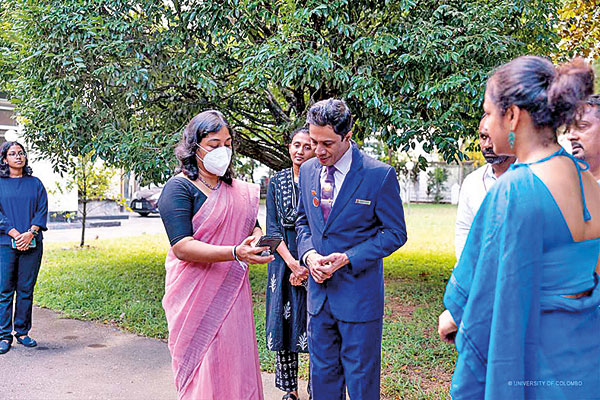 The Digital Detox Drive being launched at the Colombo university premises A designated e-waste collection point has been set up at the Centre for Environmental Initiatives, College House, to facilitate convenient and responsible disposal. This campaign reflects the university’s ongoing commitment to sustainability and environmental stewardship. The event was held with the participation of Vice Chancellor Professor Indika Mahesh Karunathilake, Centre for Planetary Health Director Professor Tharanga Thoradeniya, and the Centre for Environmental Initiatives Acting Director Dr Jinendra Dissanayake, along with staff members and students — reaffirming the university’s commitment to sustainability and collective environmental responsibility. Active engagement from the university community is essential for the success of this campaign and reflects a shared commitment to environmental responsibility, the university said. | |
The best way to say that you found the home of your dreams is by finding it on Hitad.lk. We have listings for apartments for sale or rent in Sri Lanka, no matter what locale you're looking for! Whether you live in Colombo, Galle, Kandy, Matara, Jaffna and more - we've got them all!

